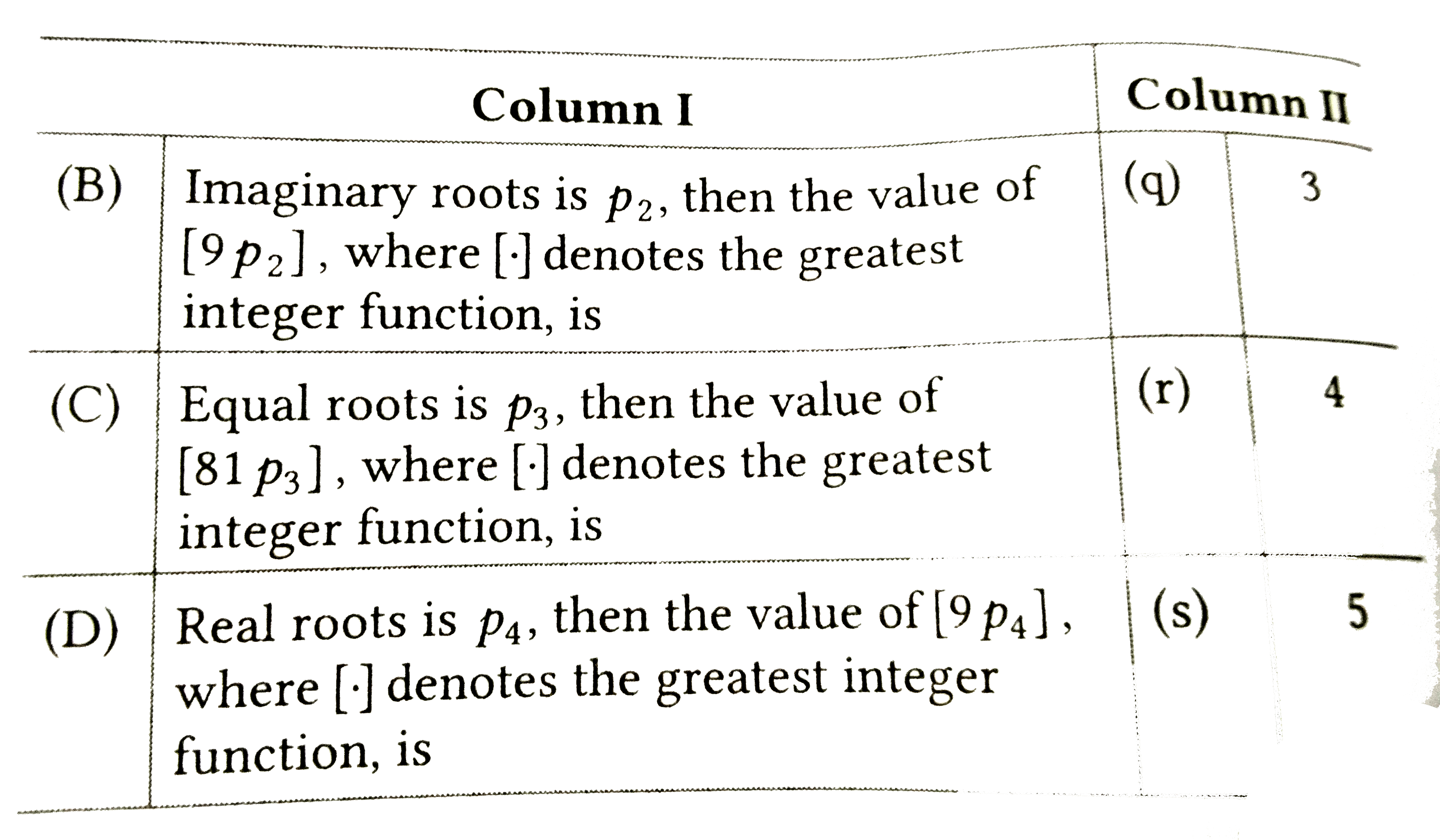If a and b are chosen randomly from the set {1,2,3,4} with replacement, then the probability of the real roots of the equation x2+ax+b=0 is
316
516
716
1116
The correct Answer is:A, C
Topper's Solved these Questions
- INTRODUCTION OF PROBABILITY THEOREMBOOK - SURA PUBLICATIONCHAPTER - INTRODUCTION OF PROBABILITY THEOREMEXERCISE - ADDITIONAL PROBLEMS SECTION - A
14 Videos
- INTRODUCTION OF PROBABILITY THEOREMBOOK - SURA PUBLICATIONCHAPTER - INTRODUCTION OF PROBABILITY THEOREMEXERCISE - ADDITIONAL PROBLEM SECTION - D
5 Videos
- INTEGRAL CALCULUSBOOK - SURA PUBLICATIONCHAPTER - INTEGRAL CALCULUSEXERCISE - Section - D (5 marks)
3 Videos
- MATRICES AND DETERMINANTS BOOK - SURA PUBLICATIONCHAPTER - MATRICES AND DETERMINANTS EXERCISE - ADDITIONAL PROBLEMS SECTION -D (5 MARK )
3 Videos
Similar Questions
If pandq are chosen randomly from the set {1,2,3,4,5,6,7,8,9,10} with replacement, determine the probability that the roots of the equation x2+px+q=0 are real.
View SolutionIf pandq are chosen randomly from the set {1,2,3,4,5,6,7,8,9,10} with replacement, determine the probability that the roots of the equation x2+px+q=0 are real.
View Solution
Knowledge Check
If p and q are chosen randomly from the set {1, 2, 3, ………, 10} with replacement, then the probability that the roots of the equation x2+px+q=0 are real is
A0.62B0.32C0.44D0.55If p and q are chosen from the set (1, 2, 3, 4, 5, 6, 7, 8, 9, 10), with replacement, the probability that the roots of the equation x2+2px+q=0 are real is
A0.84B0.16C0.62D0.38If a and b are chosen randomly from the set consisting of number 1, 2, 3, 4, 5, 6 with replacement. Then the probability that limx→0[(ax+bx)/2]2/x=6 is
A1/3B1/4C1/9D2/9
If pandq are chosen randomly from the set {1,2,3,4,5,6,7,8,9,10} with replacement, determine the probability that the roots of the equation x2+px+q=0 are real.
View SolutionTwo numbers a and b are chosen at random from the set {1,2,3,4,...,0} with replacement. The probability that the equation x2+√2(a−b)x+b=0 has


View SolutionIf a and b are chosen randomly from the set consisting of number 1, 2, 3, 4, 5, 6 with replacement. Then the probability that limx→0[(ax+bx)/2]2/x=6 is
View SolutionIf p is chosen at random from the interval [0,6] then the probability that the roots of the equation x2+px+14(p+2)=0 will be real is
View SolutionSuppose two numbers a and b are chosen randomly from the set {1, 2, 3, 4, 5, 6}. The probability that function f(x)=x3+ax2+bx is strictly increasing function on R is:
View Solution
